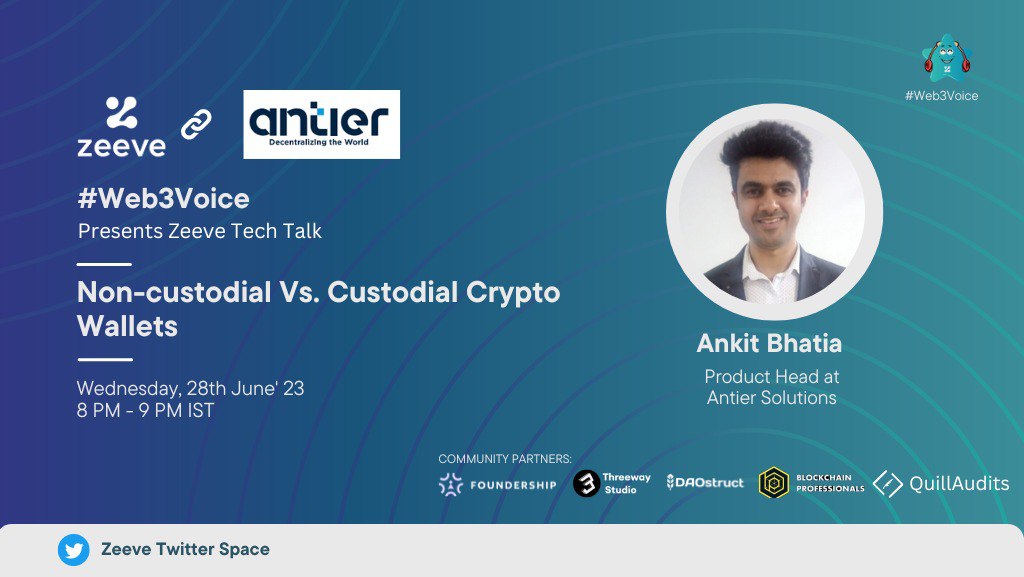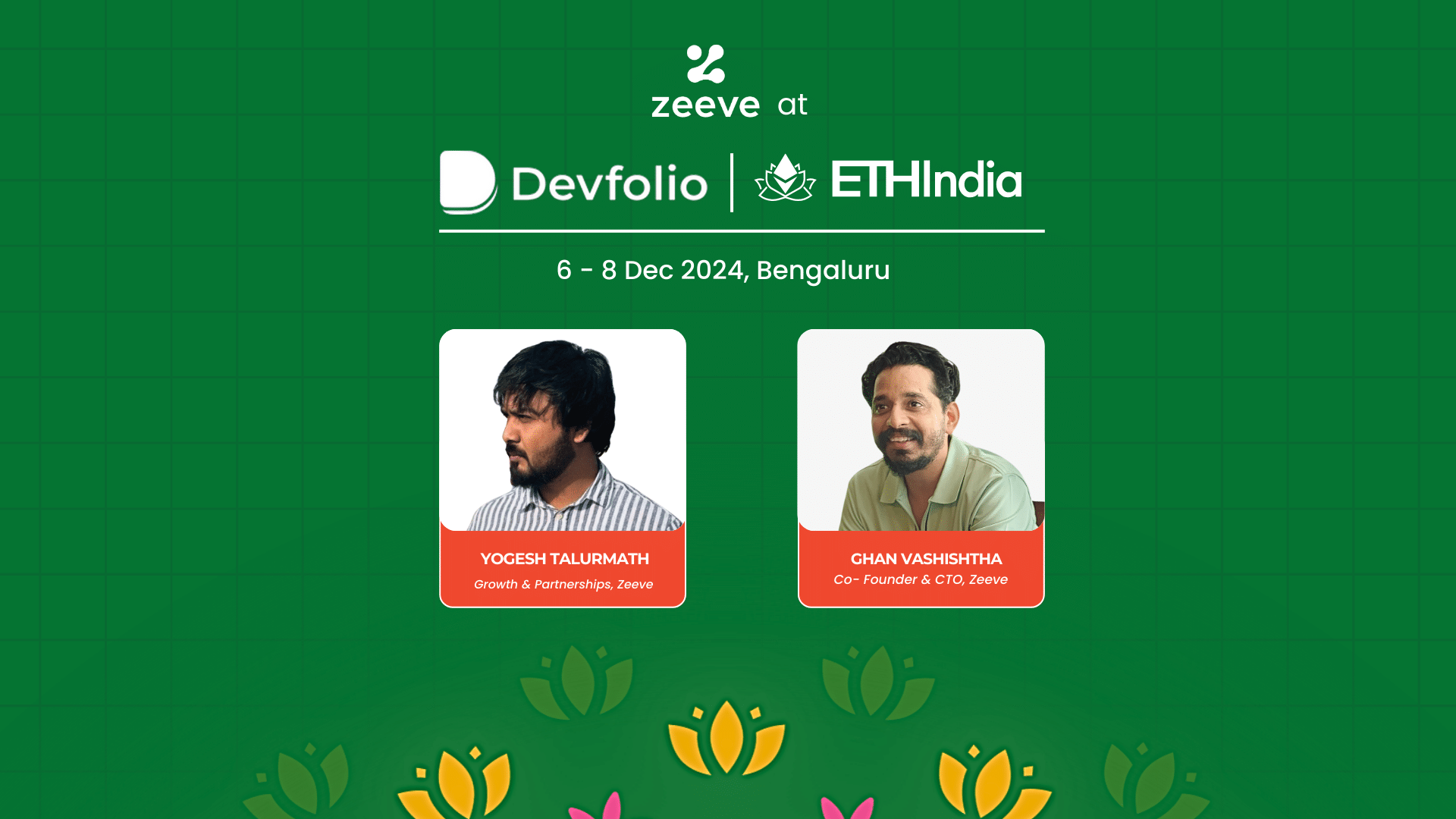On 28th June 2023, Zeeve held a Twitter AMA session hosted by Karthik MS, Social Media Manager of Zeeve., where Ankit Bhatia, Product Head at Antier Solutions, has been invited to discuss the topic, “Non-custodial Vs. Custodial Crypto Wallets.”
Karthik initiated the session by announcing the upcoming Web3Titans Workshop in Delhi, a Zeeve initiative to promote decentralized economies and empower the industry. He introduced Mr. Ankit Bhatia, highlighting his significant contributions to the blockchain industry and his leadership role at Anti Solutions.
Ankit Bhatia introduced Anti Solutions as a company focused on making the economy decentralized. They have around 600 blockchain developers based in Mohali, India, covering various aspects of blockchain technology. They work on crypto wallets, exchanges, DeFi solutions, web3 solutions, and building blockchain solutions from scratch.
However, Mr. Bhatia also acknowledges that both types of wallets have vulnerabilities. Custodial wallets are a single point of failure and can be targeted by attackers due to the significant funds they hold. On the other hand, noncustodial wallets may be susceptible to phishing attacks or malware compromising private keys.
Regarding the trade-offs between convenience and security, Mr. Bhatia mentioned that custodial wallets offer better scalability due to most transactions occurring at the database level. Additionally, custodial wallets allow users to access fiat services. On the other hand, noncustodial wallets are more suited for users seeking complete decentralization and control over their funds.
Karthik begins the discussion by asking Ankit Bhatia what are the main differences between a noncustodial wallet and a custodial Wallet.
To this question, Ankit Bhatia explains that non-custodial wallets provide complete custody of the user’s keys and funds. In contrast, custodial wallets involve trusting a third party to hold the funds. He compared custodial wallets to traditional banks, where the bank controls the funds, and non-custodial wallets to self-custody, where users have complete control over their assets.
The conversation highlights the benefits of using non-custodial wallets. These give users greater control over their digital assets, allowing direct interaction with decentralized applications (dApps) and smart contracts.
In the event of a platform shutdown, non-custodial wallets still enable users to access and withdraw their funds from the blockchain. However, custodial wallets are more prone to attacks due to being a single point of failure, and regulatory risks may arise if they don’t comply with the necessary norms.
Regarding technical aspects, Mr. Bhatia explains how noncustodial wallets implement hierarchical deterministic wallets and critical derivation paths. When users sign up for a noncustodial wallet, they create a seed phrase, which generates different private keys for each account. This way, multiple accounts can be linked to the exact seed phrase, making managing funds across various cryptocurrencies easier.
The next question discussed is the trade-offs between convenience and security when choosing between custodial and non-custodial wallets. Custodial wallets offer easy integration with traditional financial systems and scalability due to most offline transactions. On the other hand, non-custodial wallets are preferred for those seeking an utterly decentralized experience, as they allow for direct interaction with dApps and offer flexibility in accessing funds.
The follow-up question being asked to Ankit Bhatia is about the implementation of hierarchical deterministic (HD) wallets and critical derivation paths in non-custodial wallets.
Mr. Bhatia explains that users create a seed phrase that generates multiple accounts, each with a unique private key. This approach enables users to recover their accounts if they have the seed phrase but lose access to a specific private key.
Finally, the recovery processes of non-custodial wallets were also discussed, including seed phrases, secret sharing, and social recovery. While current non-custodial wallets do not support advanced recovery mechanisms like multi-party computation (MPC), Mr. Bhatia mentions that MPC can be used to share private keys into multiple parts and allow recovery even if one part is lost. However, the existing non-custodial wallets require users to safeguard their seed phrases for secure access to their funds.
Thus wrapping up the session, Karthik expresses gratitude to the audience for their time and listening attentively.
To find Ankit Bhatia`s answers to Karthik’s questions on “Non-custodial Vs. Custodial Crypto Wallets.”
Click the link below and listen to the Zeeve Tech Talk episode.







